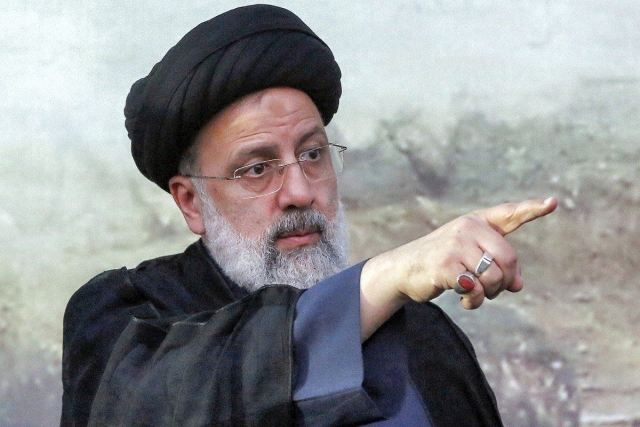Iranian President Ebrahim Raisi, in a recent statement, strongly criticized the attempts of several Muslim countries to forge closer ties with Israel, characterizing such efforts as "reactionary and regressive." These remarks come in the backdrop of ongoing negotiations between Israel and Saudi Arabia, facilitated by the United States, aimed at normalizing relations.
Speaking at a conference in Tehran dedicated to "Muslim Unity," President Raisi emphasized, "The normalization of relations with the Zionist regime is a reactionary and regressive act for any government in the Muslim world." He further asserted that the solution to dealing with Israel should not involve compromise and surrender, but rather, resistance. It's worth noting that President Raisi did not explicitly mention any specific country in his address.
Iran’s place in a shifting Middle East: Does Israel’s normalization of ties with a handful of Arab states reflect a geopolitical failure by Tehran?
— Fareed Zakaria (@FareedZakaria) September 24, 2023
From today’s GPS, part 3/3 of my exclusive interview with Iranian Pres. Ebrahim Raisi: pic.twitter.com/8uUGBWbNrh
Recent reports have indicated that Saudi Arabia is resolute in achieving a military agreement that would require the United States to provide defense for the kingdom in exchange for normalizing relations with Israel. According to insiders familiar with the negotiations, Saudi Arabia seems committed to this deal, even if Israel does not make substantial concessions to the Palestinians.
These developments, coupled with growing tensions between Iran and Israel, have raised concerns among Israeli security officials. There is apprehension that Iranian-backed terrorism within Israel could escalate in an attempt to disrupt the normalization process with Saudi Arabia. In response, Prime Minister Netanyahu convened a security meeting with the Minister of Defense and top security officials.
During this security discussion, several key issues were addressed. These included Iran's efforts to incite clashes along the Gaza border and the northern border, as well as concerns about a potential expansion of hostile activities. Additionally, the meeting covered the situation in the Gaza Strip and the recent resurgence of protests along its borders.
It is believed that a significant portion of Hamas's funding—approximately 80%—originates from Tehran. Iran is suspected of providing funds and weapons in a relatively uncontrolled and indiscriminate manner. There have also been allegations of arms smuggling through Jordan, attributed to Iran. While these developments raise concerns, senior officials in Israel have not identified a tangible threat that could derail the normalization process.
⚠️🕌🇮🇷 - The 37th International #Islamic Unity Conference began with the presence of Iranian dictator #EbrahimRaisi. pic.twitter.com/fiVnhCYQTp
— 🔥🗞The Informant (@theinformantofc) October 1, 2023
Meanwhile, reports have surfaced indicating that the Israeli Minister of Defense is scheduled to meet with the American Secretary of Defense in October during an official visit to Washington. The agenda for their meeting is expected to encompass discussions on the growing Iranian presence in Israel and the prospects for normalization with Saudi Arabia. This meeting represents an opportunity to address policy challenges and explore potential opportunities in the Middle East.


